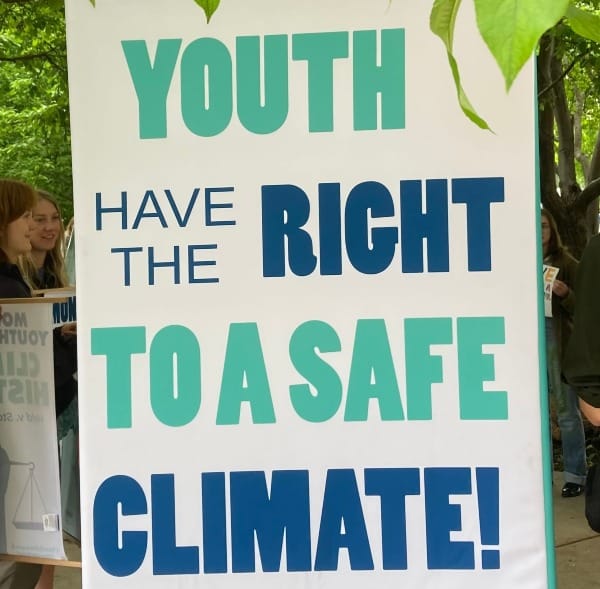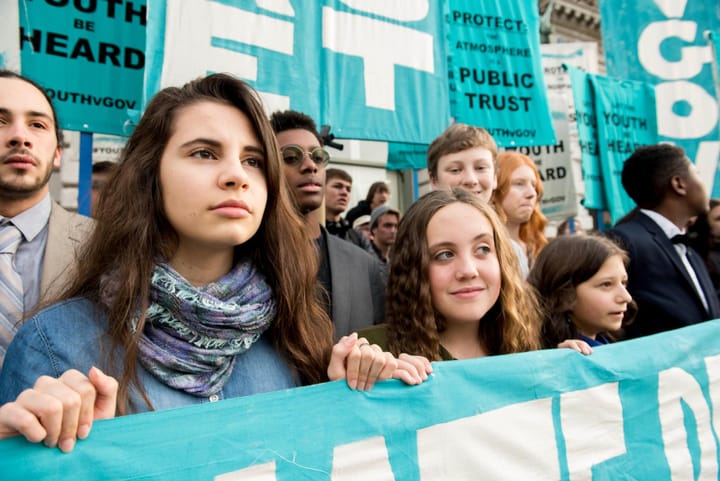Australia Is Fueling Climate Crisis And Violating Human Rights, Environmental Law Groups Tell UN Human Rights Council

Australia is violating human rights in its continued support of fossil fuels and contributions to the climate crisis, environmental lawyers in Australia and the U.S. explain in a recent submission to the United Nations Human Rights Council. These lawyers are urging the Council to make recommendations that Australia take actions to reduce its greenhouse gas emissions to “reflect the highest possible ambition” and to phase out fossil fuels.
Environmental Justice Australia, Environmental Defenders Office, and the U.S.-based group Earthjustice – nongovernmental organizations working on environmental law issues – submitted a document on July 8 to the UN Human Rights Council outlining how Australia is failing to uphold its legal obligations to protect human rights with respect to the climate crisis. The submission is part of a UN process called a Universal Periodic Review (UPR), whereby the Human Rights Council reviews UN member states’ human rights records approximately every five years. The Council issues a report to each country under review and countries can either accept or take notice of the report’s recommendations. Australia is scheduled for review in early 2021.
The UPR process does not carry the same force as a lawsuit and Australia could decide not to accept the recommendations, although it would have to explain such a decision in writing.
“Recommendations made to Australia as part of the Universal Periodic Review (UPR) process are not enforceable,” Noni Austin, an Australian and US lawyer in Earthjustice’s International Program, explained via email. “However, the UPR focuses international attention and pressure on Australia’s climate inaction, and we know that the Australian government is particularly sensitive to such attention.”
“In addition, recommendations made during the UPR provide opportunities for civil society to hold the Australian government accountable by highlighting its refusal to protect fundamental human rights,” Austin added. “For example, during the UPR process itself, Australia has to note whether it accepts or does not accept each recommendation.”
As the environmental law organizations note in their recent UPR submission, Australia’s actions are fueling the climate crisis and putting human rights at risk. Australia’s GHG emissions (excluding emissions from land use, land-use change and forestry) rose every year from 2014 to 2018, and the country is not on track to meets its 2020 or 2030 emissions reduction targets. Australia continues to subsidize and promote fossil fuels. It is one of the largest exporters of coal and liquefied natural gas in the world.
“Australia is failing to fulfill its human rights obligations to prevent foreseeable harm to human rights caused by climate change,” the environmental law organizations’ submission concludes. “Instead, its actions are worsening climate change and, accordingly, intensifying current and future harm to human rights in Australia and around the world.”
Human rights such as the rights to life, health, housing, food and self-determination are increasingly threatened due to impacts stemming from the climate crisis, which is largely caused by burning fossil fuels. In Australia for example, the devastating bushfires in 2019 and early 2020 killed at least 34 people and destroyed thousands of homes, and scientists say climate change increased the likelihood the fires would be this destructive by 30 percent.
Indigenous Australians such as the Torres Strait Islanders are particularly vulnerable to climate impacts and corresponding human rights violations. In May 2019 the Torres Strait Islanders sent a first-of-its-kind human rights complaint against the Australian government relating to climate change to the UN Human Rights Committee (a separate authority from the UN Human Rights Council). The Australian government has since said it would commit $25 million towards climate adaptation for the Torres Strait area – islands off the northern tip of Queensland that are at risk of disappearing under rising seas. The Australian government has not, however, addressed the Torres Strait Islanders’ other demands for increased reduction in GHG emissions and phasing out coal.
“Australia is among the world’s largest exporters of coal and liquefied natural gas and plans to continue expanding these exports. Australia’s fossil fuels will contribute emissions around the world for decades to come, contrary to clear evidence that fossil fuels must now remain unburned to avert the most serious consequences of climate change,” Ariane Wilkinson, senior lawyer at Environmental Justice Australia, said in a press release.
“We are asking the UN Human Rights Council to urge Australia to uphold its human rights obligations under international law,” added Earthjustice’s Noni Austin. “All Australians’ human rights should be protected and this requires Australia to take strong climate action now and encourage other countries to do the same.”


